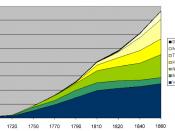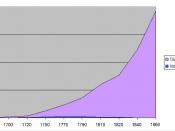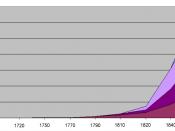Summary of Wealth, Authority and Power
During the 17th century there were very few African American slaves found in the southern
colonies, in fact they were originally treated as indentured servants. If a black indentured servant were converted to Christianity they could be free. However, a new set of laws took away that right and stated any african american would be a servant. The African Americans weren't the only ones treated badly in the South. After the discovery of tobacco in the New World, the younger sons of London merchants and bureaucrats found quick fortunes and monopolized on the production, leaving the farmers who depended on their tobacco crops out of luck.
As time passed and the hype over the tobacco boom died down the lower class farmers found themselves in trouble. In the late 1600's, after the long struggle between little work in the tobacco industry and little government control, the lower class rebelled. Thanks to their leader Nathaniel Bacon, the poor farmers were successful. In response to the rebellion, new laws were established to limit the power of wealthy families, included tenant families in political activities and set up elective posts to counter the power of those higher up. Also, new laws were created against the power of wealthy families and royal government in provincial courts. Government officials now had limited power, were excluded from county courts and were no longer exempt from local taxes. The power was now back to the people.
Unfortunately, the new local laws failed and the power was restored back to the wellÂtoÂdo families. The colonial south was once again an aristocracy. The social pyramid relied strongly on the slave trade. The small percentage of families that could afford slaves had total power and those who could not were thrown together into a...


